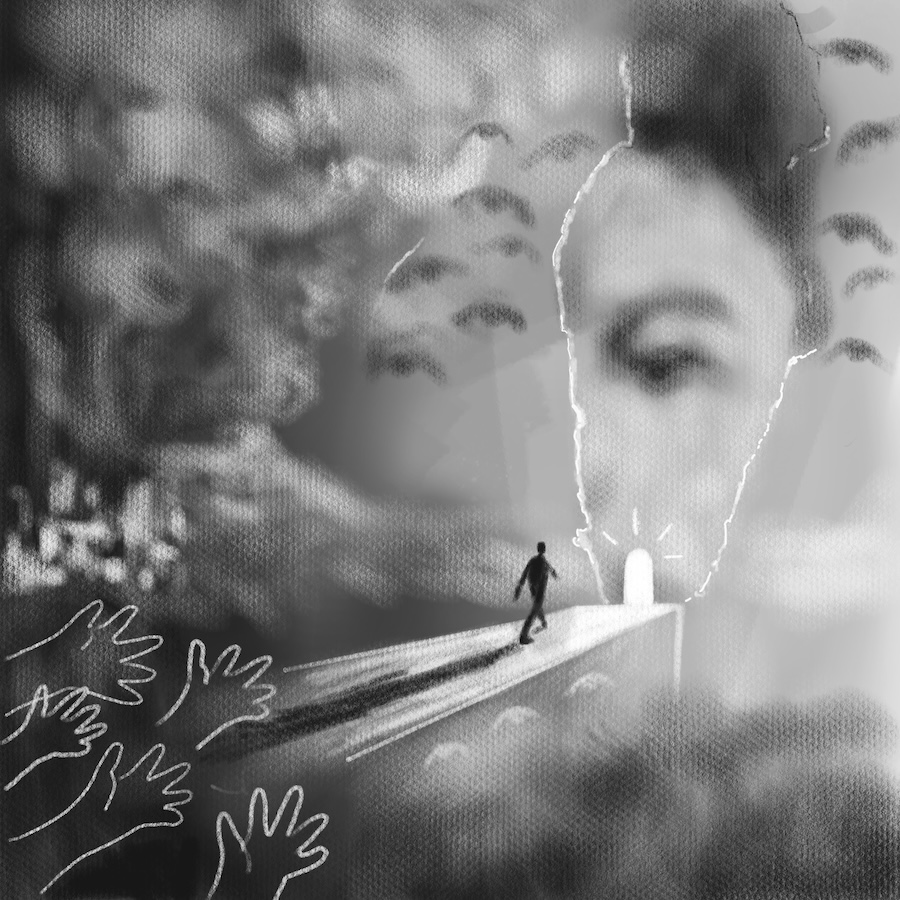The book the Frankfurt Book Fair doesn’t want you to read
November 3, 2023
 This
piece represents the opinion of the author
.
This
piece represents the opinion of the author
.
 Alfonso Garcia
Alfonso GarciaIn 1980, Edward Said approached a New York publisher and suggested that they translate and publish the work of the Egyptian novelist Naguib Mahfouz. The publisher declined. “When I inquired why,” Said later wrote, “I was told (with no detectable irony) that Arabic was a controversial language.” Eight years later, Mahfouz would go on to win the Nobel Prize in Literature.
I thought of this story when I learned, on October 13, that the Frankfurt Book Fair—the world’s largest—decided to call off an award ceremony to honor the Palestinian writer Adania Shibli for her novel “Minor Detail.” The slim novel, originally published in Arabic in 2017, begins by recalling the real-life events of 1949 when an Israeli platoon raped and killed a Bedouin woman. The novel then jumps to 2004, where we meet an unnamed Palestinian woman in Ramallah who tries to investigate this story. Using a colleague’s borrowed ID, she visits the military museum and archives in Tel Aviv, passing through checkpoints with ease. It is a telling, smart detail: In order to access the truth about the past, she must conceal her identity as a Palestinian.
Shibli often centers her novels around unnamed Palestinian women who are detached, almost comically so. In fact, in “Minor Detail,” the main character is interested in the Bedouin woman’s story not because she was raped or killed but because it happened 25 years to the day she was born.
“This minor detail,” she says, “will stay with me forever; in spite of myself and how hard I try to forget it, the truth of it will never stop chasing me.”
Much of Palestinian literature is, understandably so, about Israel, and specifically, Israel’s ethnic cleansing of Palestinians. In “Letter from Gaza,” a short story published in Arabic by the Palestinian writer Ghassan Kanafani in 1956, a Palestinian refugee from Gaza writes a letter to his Palestinian friend named Mustafa, who was also displaced in 1948 by Israel and now lives in California. The author of the letter writes searingly of the Israeli violence he witnessed in Gaza, a violence that Israel is very much reenacting again today: “I went out into the streets of Gaza, streets filled with blinding sunlight. They told me that Nadia had lost her leg when she threw herself on top of her little brothers and sisters to protect them from the bombs and flames that had fastened their claws into the house. Nadia could have saved herself, she could have run away, rescued her leg. But she didn’t.”
In “Minor Detail,” Shibli signals early on that she is not really writing a story about the Israeli occupation of Palestine. When her main character hears stories about abuses of Palestinians, she does not really take notice because they are “ordinary.” What makes “Minor Detail” moving and singular is that it is not so much about Israel but about a Palestinian’s internal struggle with memory.
In “Minor Detail,” we do not get any monologues about the toil of occupation. Even the opening of this book, about the rape of the Bedouin woman, is told with much more emotional detachment than the source reporting that Shibli used as inspiration. As a result, Shibli pushes us to examine what happens to a person when they are subjected to so much violence that it becomes routine, boring even. As the novel unfolds, her main character encounters chilling clues about the Bedouin woman’s killing, yet none of this shakes her into feeling anything at all.
There is a tendency, when writing about a beleaguered people, to infuse a story with too much piety, such that the story takes on an almost Manichaean quality with perfectly good “victims” and perfectly bad “aggressors.” Shibli does none of this and gives us a main character who is sort of a narcissist.
At times, while reading this book, I was tempted to throw my copy against a wall, if only because I felt an acute incongruence in how I was processing the brutality of life under occupation versus our main character. This, I suspect, is what Shibli wants us to examine, that feeling is itself often a luxury that those living in apartheid conditions deny to themselves or are denied by forces outside of themselves.
The novel ends with a violent denouement that, while I will not ruin here, made me turn to the first page and begin reading again from its stunning first sentence: “Nothing moved except the mirage.”
Zahir Janmohamed is a visiting assistant professor of English.

Comments
Before submitting a comment, please review our comment policy. Some key points from the policy: